Welcome! This site covers a lot about Bulgaria, but I have compiled all the basics and FAQ’s here on this page.
Here is everything you need to know about how to visit, where to go, and how much it will all cost.
(Or feel free to skip to all Bulgaria posts.)
Where is Bulgaria?
Often confused with Bolivia, Bulgaria is in Eastern Europe, bordering the Black Sea.
You may be more familiar with where Greece and Turkey are, so just head north to find Bulgaria.
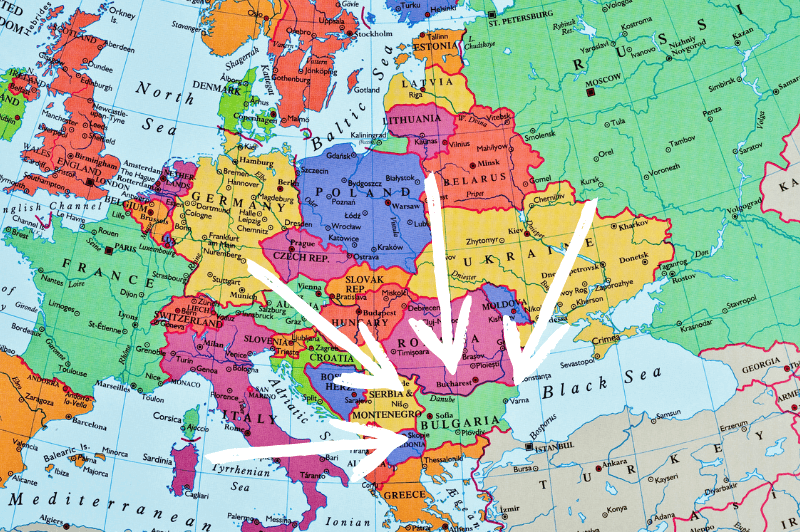
Bulgaria is also part of the Balkans, which is an area of Southeastern Europe that was once behind the iron curtain.
Although Bulgaria does have a communist past (which will be very evident during your visit), it is one of the only Balkan nations that wasn’t ever part of Yugoslavia.
(Which by the way, is broken up. It always surprises me that people still think it exists!)

Is Bulgaria Worth Visiting?
Bulgaria is a very polarizing country: Visitors tend to love it or hate it.
If you’re lucky, you might hate it at first and then grow to love it.
Bulgaria is very worth one visit, and some time to give it a chance. Like anywhere, it has it’s not-so-nice moments, but at least they are very up front.
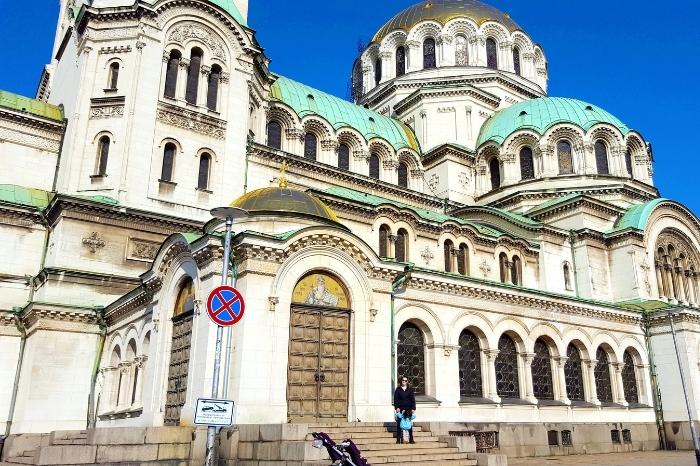
Pros and Cons to Visiting Bulgaria
Right away let’s look at a few pros and cons to visiting this Balkan nation:
Pros
- Your Money Will Go Far: As you will see in a moment, Bulgaria is a great place to visit if you are on a budget!
- You Will See Amazing Scenery: I’m always saying it, Bulgaria has a very diverse landscape. This country has a little bit of everything!
- Experience a Unique Culture and Atmosphere: If you have traveled primarily in Western Europe, you will find Bulgaria to be totally different!
- Enjoy Good Food: A lot of former Soviet countries are known for having bland or terrible food, but Bulgaria is not one of them! Their food is simple, but delicious.
- See Some Amazing History: Bulgaria is one of the oldest countries in the world and its people are pretty casual about all of the ancient history. If you’re from North America, it will blow you away!

Cons
- Poor Transit: There are very limited ways to get around the country without a car. It’s possible, but it will take much longer, and you may not be able to get everywhere that you want to.
- Grumpy Locals: Whether all of the locals are actually grumpy, or just stoic, doesn’t matter a whole lot in the grand scheme of things. Bulgarians are not particularly friendly, and you are guaranteed to be treated like a nuisance at least once.
- Run Down Cities and Attractions: Bulgaria isn’t in the best shape. It is a poor nation that has struggled with government corruption. Projects that were flagged for revitalization have stalled out or were never even started, sidewalk grates have holes that could swallow your leg, and so on.
- Ugly Architecture: For me this is not actually a con, because I enjoy the stark Soviet buildings and futuristic Brutalist architecture. Many do not share my opinion, and Brutalism is widely regarded as the ugliest period for architecture, so it’s on the con list.
- Carrying Cash is a Must: Some of the larger cities are more card friendly, but you NEED to carry cash in Bulgaria. Of all the places that we’ve been, Bulgaria had the fewest credit card machines. Luckily ATMs are cheap and the exchange rate is fair, but it’s an adjustment at best, and a pretty annoying time waster at worst.
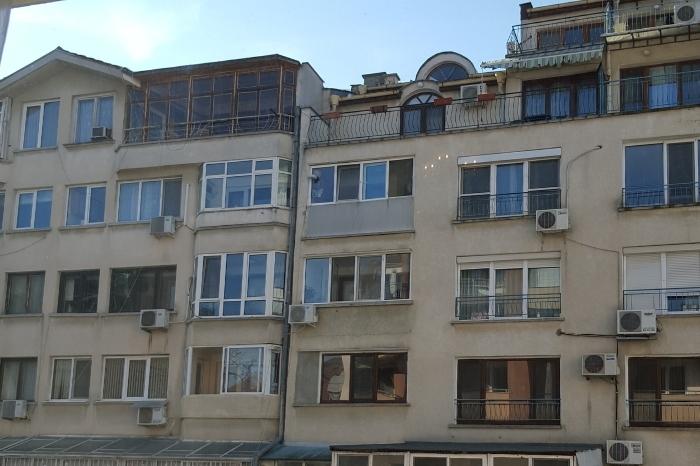
Do I Need a Visa to Visit Bulgaria? How Long Can I Stay?
Most visitors to Bulgaria do not need a visa. Bulgaria is a member of the EU, but not a member of Schengen for now. As a result, the time you spend in country does not count towards your limit of 90 days in 6 months in most countries in the EU.
The difference is nuanced, and it will be short-lived. To understand the difference, I laid it all out in my post: Is Bulgaria in the EU? (Their Membership & Schengen Explained)
Bulgarian Currency
Bulgaria still uses their own currency: The Bulgarian Leva (or “lev”). This will be changing as they join the Euro zone, which could be very difficult for their economy.
This change is supposed to take place sometime in 2024.

The lev is worth approximately $0.60 USD.
What Language Do They Speak in Bulgaria?
Like every country in the Balkans, Bulgarians speak their own language, which is Bulgarian. It is quite similar to other countries in the neighbourhood.
Signs in Bulgaria are usually in both English and Cyrillic, but Bulgarians use the Cyrillic alphabet.
Cost of Accommodation in Bulgaria
A typical hotel or apartment in Bulgaria will cost between $30 and $60 USD per night.
Bigger cities will be on the more “expensive” end of that scale, as will traveling during high season. During low season in a smaller town, you will be quite comfortable at $30 per night.
If you are a backpacking hostel traveler, you can stay in Bulgaria for even less.

Cost of Transportation in Bulgaria
Self-Driving in Bulgaria
The best way to get from town to town in Bulgaria is by car. A rental car will not set you back too much, only about $35 USD per day.
Contrary to a lot of information online, you do not need an international driver’s permit to rent a car in Bulgaria unless your driver’s license is in a language other than the Latin (English) or Cyrillic alphabets. You will need to bring your regular driver’s license.
We have rented a car several times and never had to show an international permit, so getting one is a waste of your precious travel fund!
Taxis in Bulgaria
I wouldn’t be able to tell you how much a cab will cost you in Bulgaria, because I don’t know where you’re going, but I can tell you that it’s affordable.
I would say the average city drive cost us about 5 lev. It is more expensive to go to and from the airport, and if you have luggage.
Taxis in Bulgaria are required by law to use the meter, and the rates are regulated, so as long as your driver is using the meter, you don’t need to be worried about getting scammed.

Buses and Trains in Bulgaria
Taking a bus between cities in Bulgaria is the local preferred method of public transportation. Trains in Bulgaria are old, slow, and have very limited routes.
Buses are affordable, but still not very fast. It’s best to bus for shorter routes.
Flying Within Bulgaria
Bulgaria Air does fly between Sofia and the Black Sea region if you don’t feel comfortable driving and don’t want to spend the night on a bus. A flight across the country is usually $100 USD or less.
The drive takes about 5.5 hours, so that’s not bad at all. Those are your only options for flying however, the other regions do not have airports.
How to Get Around in Bulgaria
As I mentioned, the easiest way to get around the country is by car. A lot of people are not comfortable driving in a foreign country, so if that’s you, that’s okay!
If you don’t want to drive, but you want to get somewhere off the beaten path, your best bet is to bus to the closest city that has accommodation and taxis. From there you can probably find a taxi, a small tour, or even a local to drive you where you need to go.

It is important to plan ahead with your time, because a lot of Bulgaria’s most interesting sights are outside of the cities.
Restaurants in Bulgaria & Groceries
Going to restaurants in Bulgaria is very affordable compared to almost anywhere else in Europe. A main will cost you between 8 lev and 10 lev ($4.80 to $6.00) except in more touristy areas where it could be between 12 lev and 15 lev.
You can eat and drink very well for $30 per day.
Typically the best way to save money on any vacation is to make your own food. In Bulgaria this is less true than in other places. You can still save a bit of money, but you will need to do some meal planning to make it truly worth it.

Plan to make your own breakfasts and a few bagged lunches and then enjoy yourself at dinner.
If you are slow traveling, and spending more than a week in one place, then you will have the option to buy groceries and use them for several meals. Eventually those savings will add up.
If you want to eat out all the time, you can do so without much guilt.
What to Eat and Drink in Bulgaria
There are more Bulgarian specialties to eat and drink during your stay than you might realize!
I have compiled a list of 30+ Must-Try Bulgarian Dishes and Treats, but here’s a quick summary:

Salads
Every menu in Bulgaria is bubbling over with salad options! Shopska, caprese, greek, you name it. Lucky that you’re in a country where you can afford a delicious salad and a main!
Rakia
While Rakia isn’t solely a Bulgarian specialty, like other Balkan countries, Bulgarians claim that the beverage was their invention.
Either way you are bound to see some. Rakia is a brandy-type drink that is available in almost every kind of fruit. Try apricot, plum, cherry, and more.
(Not all at once, that’ll kill you!)

Pizza
Ah yes, the Bulgarian specialty: Za! Pi-zza!
Okay it’s not Bulgarian, but it is on almost every menu and they certainly put their own spin on it.
You can get chicken with corn, ham and pickle, and many other combos that would make an Italian’s blood run cold.
You’re almost guaranteed to try it, because there will be times where you aren’t sure about anything else on the menu.
(Google translate will only get you so far with a Bulgarian menu!)
Happy
What now?
Happy is actually a Bulgarian chain restaurant known officially as Happy Bar and Grill. It is in most bigger cities and has a HUGE menu.
Surprisingly, they have a very large (and very delicious) sushi menu. They also serve traditional food, and are usually open for breakfast.
Basically, you need to try something at Happy.
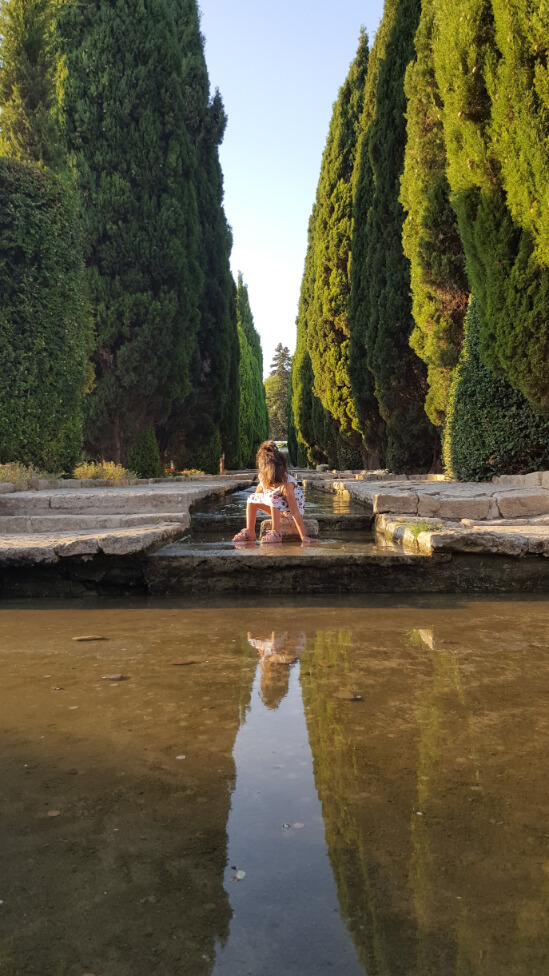
How Much to Budget for Activities in Bulgaria
Budgeting for activities is always a little tricky, because prices can vary so wildly. In Bulgaria, you don’t need to budget much! Most of the historical sites and tourist attractions are either free, or less than 5 lev ($3 USD).
Bulgarians have an attitude that they own whatever is on the land, and we all benefit from that perspective, because nobody there likes to pay admission.
The most expensive thing that we have visited in Bulgaria, is Balchik palace, which costs a trifling 7 lev for adults ($4.20 USD).
Where to go in Bulgaria
Your trip to Bulgaria is most easily divided into three categories:
- Sofia (The Capital)
- The Black Sea Region
- Everywhere Else
Sofia
First off, I have written a whole Sofia Bulgaria Guide to truly help you decide what there is to see and do in the capital city.
Sofia is one of the better kept cities in Bulgaria, and better kept secrets in Europe. It’s a bumping urban center with a pedestrian friendly downtown and a huge variety of restaurants.

Sofia also has a lot of Roman ruins, which is one of my favorite things about the city. Plan to spend at least 3 days in Sofia.
Black Sea
The Black Sea region is the more “touristy” part of Bulgaria. Not that Sofia isn’t at all touristy, it just doesn’t cater to tourists like the resort towns on the east coast.
There are two major cities by the Black Sea: Burgas and Varna, and they are only about 2 hours drive from each other.

But that’s not all!
By the Black Sea you will also find the ancient walled cities of Nessebar and Sozopol, the resorts of Golden Sands and Sunny Beach, and lesser known towns like Primorska, Pomorie, and Balchik.
You could spend weeks exploring this part of Bulgaria, but I recommend no less than 5 days.
Everywhere Else
The two other cities that you should really make time for on your trip to Bulgaria are Plovdiv and Veliko Tarnovo.
Veliko Tarnovo is known for its ancient fortress Tsaravets, but my favorite part is the tunnel that runs under the colorful houses built into the hill. So cool! It’s like budget Cinque Terre but over a highway. Ooh la la!

Plovdiv is like a cleaner, smaller, cuter Sofia, with the ruins of a Roman theater and ancient Bulgarian timber houses.
If you have more time, Ruse is known as “Little Vienna” because of its stereotypical European architecture, not found in other parts of Bulgaria.
I have covered all of the best sites outside of Sofia here: Beyond Sofia – Things to do in Bulgaria.
Unesco Sites in Bulgaria
Bulgaria is home to TEN UNESCO World Heritage Sites. 7 are cultural and 3 are natural:
Cultural
- Ancient City of Nessebar
- Boyana Church
- Madara Rider
- Rila Monastery
- Rock-Hewn Churches of Ivanovo
- Thracian Tomb of Kazanlak
- Thracian Tomb of Sveshtari
Natural
- Ancient and Primeval Beech Forests of the Carpathians and Other Regions of Europe
- Pirin National Park
- Srebarna Nature Reserve
And that’s only the official sites! There are many more places in Bulgaria that deserve to be on the list.
Bulgarian Architecture
I mentioned earlier that Bulgarian architecture is not most people’s cup of tea, but I love it! There is a very unique mix of run down European style buildings, solid concrete apartment blocks, and weird Brutalist remnants of the Soviet era gone by.
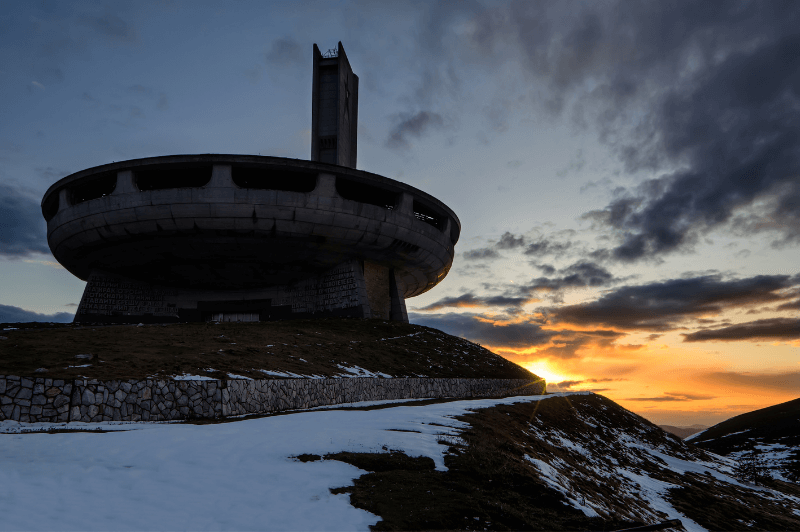
Our house is divided, because my husband doesn’t “get it.”
Is Bulgaria Safe?
Bulgaria is absolutely a safe country to visit. They are not at war, and the general crime rate is low. I would not hesitate to go to Bulgaria as a solo female traveler.
Is Bulgaria Family Friendly?
Bulgaria is very family friendly, and the suspicious locals are actually more likely to loosen up if you have kids along. Because it’s so affordable, you can enjoy a lot of family time in Bulgaria doing all kinds of activities, and not blow the budget.

How Long to Spend in Bulgaria
Of course most of the time we are limited to how much time we have, and not how much time a destination needs, so the answer is subjective.
If you have only 7 days to spend in Bulgaria: Spend 4 days between Burgas and either Nessebar or Sozopol. Then spend 3 days seeing Varna and the Balchik area.
If you have 10 days, you could add a stop in Sofia.

If you aren’t interested in the seaside, spend 4 days in Sofia/Plovdiv and another 2 or 3 in Veliko Tarnovo.
OR 4 days Sofia/Plovdiv and a couple days road trip to Belogradchik Fortress in the northwest.
You could spend weeks in Bulgaria and not see it all. A month would be comfortable to see all of the major things without being too rushed. You can’t see everything in only a couple of weeks and truly enjoy it.
Getting to Bulgaria
The best way to get to Bulgaria is to fly. You can get low cost carriers into either Sofia, Varna, or Burgas, from almost any major European city.
The most affordable way to get yourself there, is to book separate tickets and fly yourself to a city like London or Vienna for as cheap as possible.
Check Bulgaria Air’s site manually for tickets, because they are not always listed in Google Flights.

Best Time to Visit Bulgaria
Like most places, the shoulder season is absolutely the best time to visit Bulgaria. That means spring and fall, or roughly: March – May, and September – November.
The summer can be stifling hot, and it will be busier with tourists on vacation.
Bulgaria does get cold in the winter, and the Black Sea region is especially windy. Sofia and much of Bulgaria will get snow.
Bulgaria is also known for skiing, so if you like snow, maybe a winter visit is for you!
So there you have it! Time to start planning a trip to Bulgaria! Or don’t, and the rest of us will keep it as our little secret. 🙂